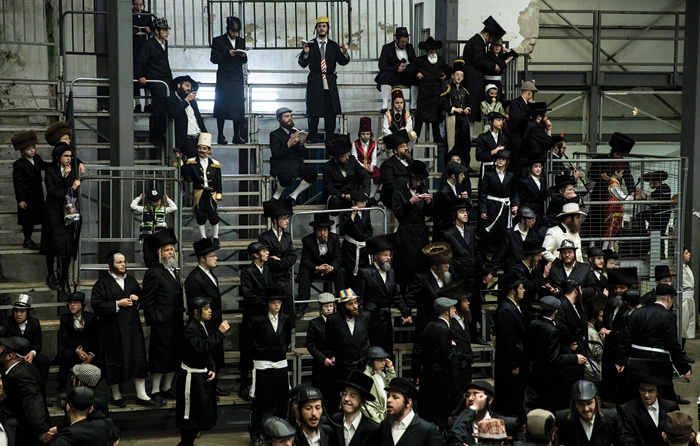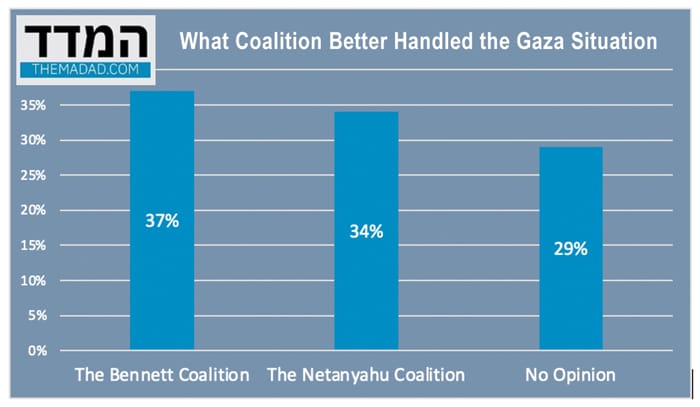 Amir Levy/Getty Images
Amir Levy/Getty Images With the Gaza crisis in the rearview mirror, a new crisis is only a matter of time. And for an Israeli government whose lone achievement is to keep Israelis on their toes, awaiting the next eruption of political fireworks, the annual budget is an opportunity to demonstrate its unique character. What’s wrong with the budget, you may ask? The better question would be: what’s good about it? It is based on unrealistic assumptions, has little to offer when it comes to resolving long term challenges, and is especially, distinctively bold in handing what Americans tend to call “pork,” only in Israel’s case pork might not be the proper term, as the allocations in question are generously handed out to serve ultra-Orthodox interests.
The Finance Ministry warned this week that what the government intends to do is likely to weaken Israel’s economy. “Increasing the support for Yeshivah institutions and the distribution of food stamps … will increase the incentive for non-participation in employment…” the professional team explained in a letter. It is not the usual habit of professional government officials to pen a letter in which the policy of the government is interpreted in such a negative light. But the men and women of the Finance Ministry seemed to think that they have no choice. Informing the public that what the government is doing has the potential to harm Israel’s well-being is the bare minimum for an honest public servant.
What is the government doing? It is allocating many billions, some say 10, some say 12, to achieve the following things: more allocations to tens of thousands of Yeshiva students who study Torah all day rather than go to work. Distributing food stamps to communities who are eligible for local tax discount – mostly ultra-Orthodox. Eliminating the demand that schools must teach basic skills to get equal funds, thus adding billions to Haredi schools.
The government still says that it strives to increase the share of Haredi men in the workforce, but everything it does seems to counter such stated intention.
The government still says that it strives to increase the share of Haredi men in the workforce (it is currently slightly higher than 50%, compared to more than 80% in other communities), but everything the government does seems to counter such stated intention. “The increase in the employment rate of ultra-Orthodox men is the main potential for growth … from a labor-market viewpoint,” the professionals wrote. That is to say: What the government is doing is the opposite of pushing for growth. Giving more to Haredi schools “without supervision” and in which “basic skills” are not taught “will lead to a widening of the skill gap and an impairment of [Haredi] participation in the work force.”
The more one thinks about this policy the more enraged or desperate one becomes. A commentator in Haaretz, known for her no-nonsense approach to economic affairs, wrote that “the funds approved by Netanyahu are a death sentence for Israel.” And of course, it might be a little premature to wrap up and declare that the end is around the corner, and yet, the sentiment is based on evidence. If the government is actively encouraging the empowerment of the least productive sector in Israel, whose rate of demographic growth is staggeringly high, the future indeed seems bleak. A poorer Israel is going to be a weaker Israel, and a weaker Israel cannot survive in a tough neighborhood.
And we didn’t even touch the other repercussions of such a budget. The moral travesty of letting the ultra-Orthodox evade the military draft; the emotional stress of secular Israelis who might feel they have no future in their own country; the devastation of the national education system whose requirements are no longer more than a recommendation; the growing suspicion of center-left Israelis that Jewishness is something they must reject.
For a week of fighting in Gaza, it was easy to forget about all the other urgent challenges that Israel faces. What an irony – an eruption of violence gave us some room to breathe, a temporary respite from the bickering and the contentious debate that characterizes 2023 Israel.
But now it is all back: The failure – thus far – to reach a compromise concerning legal reforms; the wasteful, anti-growth budget; the bad mouthing of political rivals; the dismissive tone directed at concerned citizens; the daily reminders that Israel is headed in a direction that would make it a place that many of its citizens might consider inhabitable.
Something I wrote in Hebrew
There is nothing less useful than saying that we need to “think outside the box” about Gaza. In general, thinking outside the box is overrated … what one finds outside the box, are mainly delusional, dangerous, kooky ideas … In Gaza the players are known, the interests are fixed, the arenas do not change. One can offer many ideas about Gaza, and few practical ideas about Gaza. Applicability is a necessary ingredient. And there is another necessary element: a reasonable level of risk. That is, there is no point in proposing a creative idea that could lead to devastation.
A week’s numbers
The operation in Gaza was good – politically speaking – for the coalition and boosted Netanyahu’s numbers. But it was short, and in two weeks, could be forgotten.

A reader’s response:
Erez Katz asked: “Why is Israel only bombing Islamic Jihad and not Hamas, who rules Gaza?”
Answer: It is a good question. Many experts feel that Israel is too soft with Hamas, because of its reluctance to destabilize the situation within Gaza (someone needs to be in control).
Shmuel Rosner is senior political editor. For more analysis of Israeli and international politics, visit Rosner’s Domain at jewishjournal.com/rosnersdomain.























 More news and opinions than at a Shabbat dinner, right in your inbox.
More news and opinions than at a Shabbat dinner, right in your inbox.